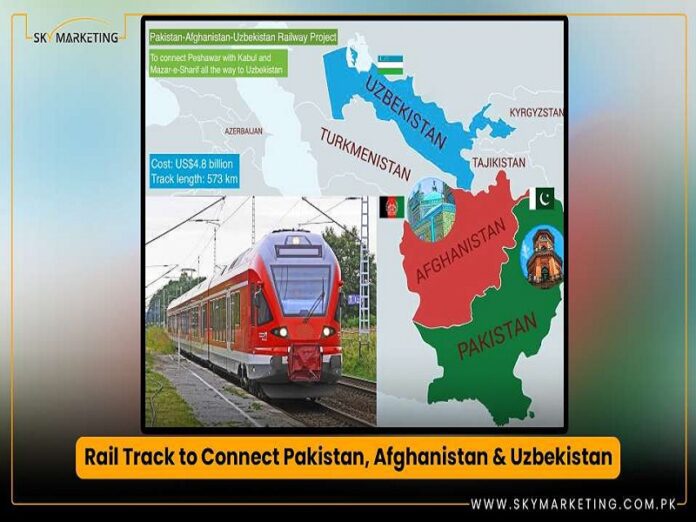The Russian and Uzbek Transport Ministries agreed earlier in the month to begin practical implementation of the Trans-Afghan Railway project, also known as the Pakistan-Afghanistan-Uzbekistan (PAKAFUZ) railway, by carrying out feasibility studies. They also plan to hold talks with members of Pakistan Railways and Afghan representatives during the next Russia-Islamic World Forum in Kazan in mid-May. These developments represent slow but nevertheless steady progress on this project.
The goal is to pioneer a new Central Eurasian Corridor for expanding trade between Russia and South Asia, all while enabling the Central Asian Republics and Afghanistan to profit accordingly from facilitating this route, though not much has been accomplished in recent years due to five issues. The first is that Afghan-Pakistani tensions have raised concern about this project’s viability since either might close off transit to the other as leverage and thus disrupt inter-regional trade for everyone else.
The second issue is that ISIS-K remains a threat inside Afghanistan just like allegedly Taliban-backed terrorists are an increasing threat inside Pakistan, which could lead to these groups targeting cargoes along this railway and even hijacking them just like Baloch separatists recently did to the Jaffar Express. Third, US sanctions on Russia and Afghanistan remain a formidable economic obstacle since these could be weaponized for political reasons to pressure companies against utilizing this route for trade.
The fourth issue is that Russia is prioritizing financing its special operation while Pakistan is financially struggling so it might be difficult to raise the funds for financing this estimated $4.6-8.2 billion project. And finally, although circuitous and also subject to US sanctions, the already existing North-South Transport Corridor (NSTC) through Iran could emerge as a viable alternative to PAKAFUZ if Iran and the US reach a comprehensive deal over the nuclear issue that involves phased sanctions relief.
Nevertheless, the political will does indeed exist among all parties to at least have all the plans in place for constructing PAKAFUZ in case the aforementioned five issues are overcome in the future, hence why Russia, Uzbekistan, Afghanistan, and Pakistan will discuss this project during next month’s forum. Russia remains committed to it no matter what since this route could one day connect to India if there’s ever a breakthrough in relations with Pakistan (however difficult that is to imagine right now after Pahalgam).
To briefly elaborate, India and Pakistan might be more willing to mutually compromise on disputed Kashmir by agreeing to formalize the Line of Control between their respective parts of this territory as the international border, which could then unlock the aforesaid and other economic opportunities. Not only would both objectively benefit, but so too would the US, which has a strategic interest in India more effectively balancing China’s economic influence in Central Asia via PAKAFUZ.
The challenge though is in getting Pakistan’s de facto military rulers to agree to this since they’d no longer be able to exploit this conflict for legitimizing their control over the country, ergo why the America First faction reportedly wants civilian-led democratic rule there as a means to this end. Even if PAKAFUZ never connects to India because the Kashmir Conflict remains unresolved, this project would still accelerate multipolar processes in Eurasia upon completion, it’ll just fall short of its full potential.







